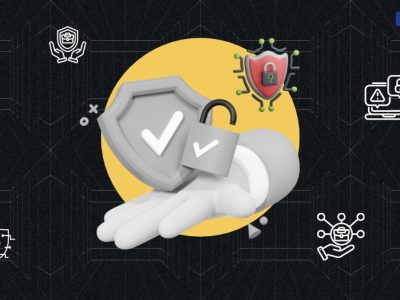How to Become an Information Security Analyst and Escape Your Office

Information security analysts are essential in defending sensitive data against cyberattacks in the modern digital world.
These experts monitor networks, spot weaknesses, and put security measures in place to protect data, similar to network security engineers.
Information security is more important than ever as cyberattacks get more complex. Becoming an information security analyst has many advantages for digital nomads.
This career path guarantees a consistent skill demand and allows you to work from anywhere.
Companies are increasingly looking for specialists who can secure their digital assets due to the growth of remote work, making this a great career choice for people who want to work from home.
By mastering the art of information security, you can enjoy the freedom of a nomadic lifestyle while contributing to the safety of the digital landscape.
How to Become an Information Security Analyst and Work Remote
So, you want to become an information security analyst! That’s great. But did you know that just like in the case of a cyber security auditor, there are several skills and qualifications you would need to have in this job as well?
Let me break all the essentials down for you:
Essential Skills and Knowledge
To become a successful information security analyst, you’ll need a solid technical skills and soft skills foundation.
On the technical side, understanding networking concepts, programming languages, and operating systems is essential.
You’ll also need to be familiar with cybersecurity frameworks like ISO 27001 and NIST Cybersecurity Framework. These frameworks provide guidelines and standards for protecting information systems.
But technical skills alone aren’t enough. You’ll also need strong, soft skills. Problem-solving and critical thinking are crucial for identifying and addressing security threats.
Effective communication is vital for collaborating with teams, reporting vulnerabilities, and educating others about cybersecurity best practices.
Finally, adaptability is key in the ever-evolving world of information security, where new threats and technologies emerge constantly.
To demonstrate your expertise and increase your job prospects, consider obtaining industry certifications like the following:
- CISSP (Certified Information Systems Security Professional)
- CISM (Certified Information Security Manager)
- CISA (Certified Information Systems Auditor)
- CEH (Certified Ethical Hacker).
These certifications validate your knowledge and skills and can open doors to exciting career opportunities.
Educational Pathways
While a formal degree in computer science, information technology, or cybersecurity can provide a strong foundation for a career in information security analysis, there are other paths.
Online courses and certifications offer a flexible and accessible way to learn about information security. Platforms like Coursera, Udemy, and Cybrary provide various courses covering various cybersecurity topics, from network security to ethical hacking.
These courses can be a great supplement to a degree or even a standalone option for those who prefer self-paced learning.
For the self-motivated learner, a wealth of online resources is available. Websites, blogs, and forums dedicated to cybersecurity can provide valuable insights, tutorials, and practical advice.
You can build a solid understanding of information security concepts by actively engaging with these resources and practicing your skills through hands-on projects.
Here are some additional tips for self-learners:
- Join online communities: Connect with other cybersecurity enthusiasts and professionals and cloud engineers on forums and social media groups. You can ask questions, share knowledge, and stay updated on industry trends.
- Participate in online challenges and competitions: These can be a fun and effective way to test your skills and learn from others.
- Contribute to open-source projects: Contributing to open-source cybersecurity projects can give you valuable experience and exposure to real-world challenges.
- Attend online conferences and webinars: Many cybersecurity conferences and webinars are now held virtually, making them accessible to learners worldwide.
Remember, the key to success in self-learning is consistency and dedication. By actively seeking opportunities to learn and practice, you can build the skills and knowledge needed to become a successful information security analyst.
Finding Remote Information Security Analyst Jobs
So, as you must have already understood, this career path offers job security and the freedom to escape the traditional office environment.
Additionally, finding a remote job as an information security analyst can be easier than you think.
Furthermore, by using these resources, you can find a remote job as an information security analyst and enjoy the flexibility of working from anywhere.
Here are some tips to help you get started.
Job Boards
Websites like Indeed, LinkedIn, and Dice are great places to look for information security analyst jobs. These platforms allow you to filter your search to show only remote positions. You can also set up job alerts to get notified when new remote jobs are posted.
Remote Job Boards
There are also job boards specifically for remote work. Websites like We Work Remotely and Remote OK list thousands of remote job opportunities across various fields, including information security. These sites are perfect for finding jobs that let you work from anywhere.
Networking
Networking is a powerful tool for finding remote jobs. Join online communities and forums related to cybersecurity. Participate in discussions and share your knowledge.
Attend virtual conferences and webinars to meet professionals in the field. Social media platforms like Twitter and LinkedIn are also great for networking. Follow industry leaders and join groups related to information security.
Tips for Success as a Remote Information Security Analyst
Once you’ve landed your dream remote information security analyst job, it’s time to focus on building a successful and sustainable career. Here are some tips to help you thrive in this exciting and challenging field:
Time Management and Productivity Techniques
As a remote worker, developing effective time management and productivity techniques is essential. Here are a few strategies to consider:
- Create a daily routine: Establish a consistent daily schedule that includes time for work, breaks, and personal activities. This routine will help you stay focused and productive.
- Set clear goals: Break down your tasks into smaller, manageable goals. This will help you stay organized and motivated.
- Use productivity tools: There are many productivity tools available to help you stay on track, such as task management apps, time tracking software, and noise-canceling headphones.
- Take regular breaks: Short breaks throughout the day can help you stay refreshed and focused.
Setting Up a Home Office
A well-equipped home office can significantly improve your productivity and comfort as a remote worker. Consider the following factors when setting up your workspace:
- Ergonomics: Ensure that your desk, chair, and computer are set up ergonomically to prevent discomfort and strain.
- Technology: Invest in a reliable computer, a proper digital workspace, a high-speed internet connection, and any necessary peripherals.
- Organization: Keep your workspace clean and organized to minimize distractions.
- Dedicated space: If possible, create a dedicated workspace that is separate from your living area. This will help you establish a clear work-life boundary.
Building a Professional Network
Networking is essential for success in any field, and it’s particularly important for remote workers. Here are some tips for building a strong professional network:
- Attend industry events: Even if you can’t attend in-person events, there are many virtual conferences and webinars available.
- Join online communities: Participate in forums, groups, and chat rooms related to information security.
- Connect with colleagues: Build relationships with your colleagues, even if you don’t work in the same office.
- Offer to help others: Helping others can be a great way to build relationships and establish yourself as an expert in your field.
Staying Updated with Industry Trends
The field of information security is constantly evolving, so it’s important to stay updated on the latest trends and technologies. Here are some ways to stay informed:
- Read industry publications: Subscribe to newsletters, blogs, and magazines that cover information security topics.
- Follow industry experts: Follow thought leaders and influencers on social media.
- Attend webinars and conferences: Participate in virtual events to learn about new developments and trends.
- Take continuing education courses: Stay up-to-date on the latest certifications and training programs.
Maintaining Work-Life Balance
As a remote worker, it’s easy to get caught up in your work and neglect your personal life. It’s important to maintain a healthy work-life balance to prevent burnout and ensure your overall well-being. Here are some tips for achieving a healthy balance:
- Set boundaries: Establish clear boundaries between work and personal time.
- Take time for yourself: Make sure to schedule time for hobbies, relaxation, and socializing.
- Disconnect: Turn off your work devices and avoid checking emails or work-related messages outside of work hours.
- Prioritize self-care: Take care of your physical and mental health by getting enough sleep, eating healthy, and exercising regularly.
By following these tips, you can build a successful and fulfilling career as a remote information security analyst. Remember, the key to success is dedication, hard work, and a willingness to continuously learn and adapt.
How Much Does an Information Security Analyst Make
While specific figures can change over time, information security analysts typically earn a higher-than-average salary than other professions.
For example, in the United States, the average salary for an information security analyst is often around $100,000 per year.
However, this can range from significantly less for entry-level positions to well over $150,000 or more for experienced professionals with advanced certifications and specialized skills.
The salary for an information security analyst can vary significantly depending on factors such as experience, location, certifications, and the specific industry you work in. However, it’s generally a well-paying field.
Several factors can influence your salary as an information security analyst:
- Experience: More experienced analysts generally earn higher salaries.
- Certifications: Holding industry certifications like CISSP, CISM, or CISA can increase your earning potential.
- Location: Salaries can vary depending on the geographic location. Major tech hubs and cities with high living costs often have higher average salaries.
- Industry: The specific industry you work in can also affect your salary. Industries such as finance, healthcare, and technology often offer higher compensation for information security professionals.
- Company size: Larger companies may offer higher salaries due to their greater resources and the complexity of their security needs.
Additional Benefits
In addition to competitive salaries, information security analysts often enjoy various benefits, including:
- Remote work opportunities: Many information security analyst positions are now remote, offering flexibility and work-life balance.
- Job security: The demand for information security professionals grows as cyber threats become more sophisticated.
- Intellectual stimulation: The field of information security offers challenging and intellectually stimulating work.
- Opportunities for advancement: With experience and certifications, you can advance to higher-paying roles, such as security manager or chief information security officer.
Make it Big
Becoming an information security analyst offers a rewarding and challenging career path, especially for those seeking a remote and flexible lifestyle. By acquiring the necessary technical skills, soft skills, and certifications, you can position yourself for success in this growing field.
Remember, the journey to becoming an information security analyst may require dedication and perseverance, but the rewards are well worth it. The ability to work remotely, earn a competitive salary, and contribute to the protection of digital information is a powerful motivator for many.
If you’re passionate about technology, problem-solving, and making a positive impact, consider pursuing a career in information security analysis. With the right skills and dedication, you can escape the traditional office and embark on a fulfilling journey as a digital nomad.
Read More…
























